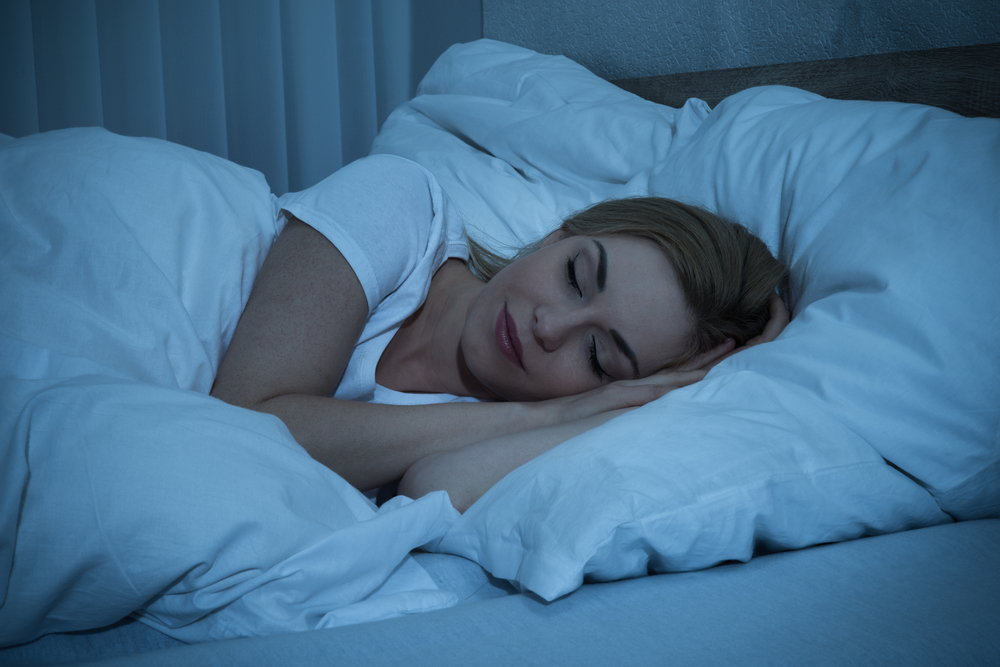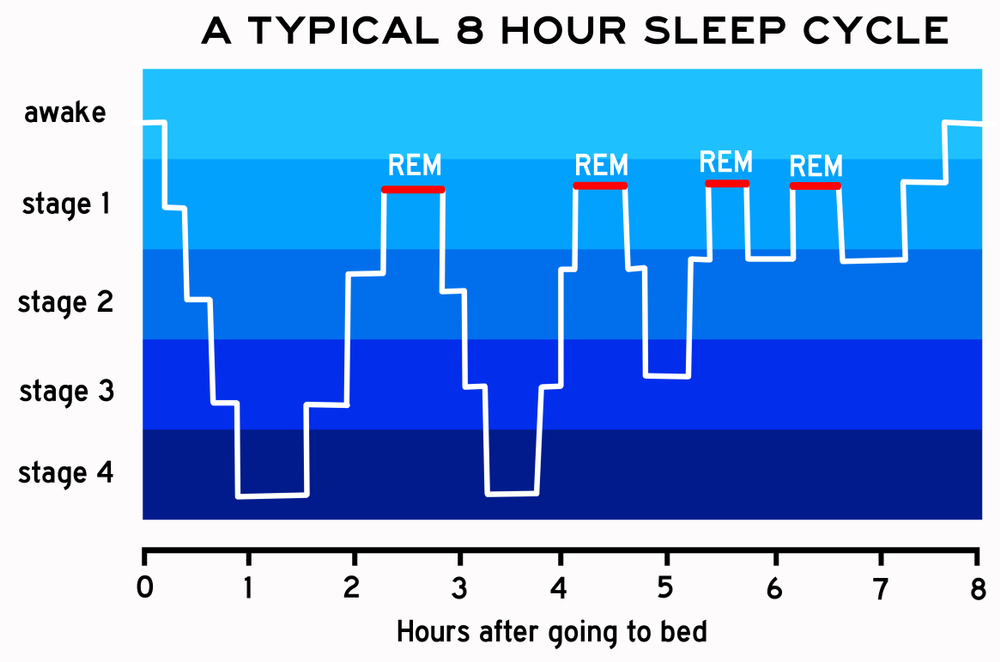Table of Contents (click to expand)
Extreme ends of the temperature spectrum are never good for restful sleep, but understanding the temperature fluctuations in our body and making it easier to achieve our target sleep temperature is a good move.
Do you remember the last time you woke up in the middle of the night, legs tangled in sweaty sheets, as though your bedroom had been magically transformed into a sauna? Trying to sleep through a sticky, humid night is nothing short of miserable, but shivering through a bitter night, toes half-frozen, also doesn’t do your sleep quality many favors. Is there a perfect temperature that facilitates the best-quality sleep, or is every person different?
When it comes to the “ideal” temperature for sleeping, experts suggest leaning towards a colder environment, rather than a toasty and warm one. However, it feels so good to be tucked up in mounds of blankets on a chilly evening… does that simple joy need to be sacrificed for better health and restfulness in the morning?

Temperature And Sleep Patterns
As you likely know, sleeping is one of the best ways for our body to rest and recover after activity or strain, and few things are more frustrating than being unable to fall asleep at the end of a long day. While the body is good at adjusting to unusual situations and environments, it still has preferable conditions that allow it to function better. When it comes to sleeping, the body prefers a temperature of between 60 and 68 degrees Fahrenheit.
Part of our body’s Circadian rhythm is temperature regulation, and the temperature of our body will fluctuate over the course of the day. Beginning in the late afternoon, the body’s metabolism slows down (typically) and the temperature begins to drop, bottoming out a few hours before we wake up. As our body begins to pull out of sleep, the temperature rises again in preparation for the activities of the day. To help this process along, and allow our Circadian rhythms to function properly, we shouldn’t make the body work harder than necessary.

In other words, our metabolism establishes a target temperature for the body, and if we are warmer or colder than that target, the body will need to work harder to regulate, dedicating more energy to that task and likely keeping us awake as a result of this discomfort. Since the body naturally lowers the temperature when going to sleep, it makes more sense to sleep in a cool room than a warm one, but that doesn’t mean blasting the AC in the summer or shutting off the heat in the winter. Extreme cold will be just as distracting and untenable for sleep as being in an excessively hot room.
With all that in mind, if you often have trouble sleeping, you may think that the solution is simple and straightforward. However, it is important to note that there are many different aspects that go into good “sleep hygiene”, temperature being one among them. Good habits surrounding sleep, such as cutting down on screen time before bed, using your bed primarily for sleep, and avoiding caffeine and other stimulants late at night, just to name a few, can also affect the duration and quality of your sleep.
Also Read: Why Does Sleeping With Your Feet Outside The Covers Help You Sleep?
Benefits Of Sleeping In A Cool Room
Not only do studies show that humans sleep better in a colder environment, there are also a number of other health benefits we can enjoy from dozing off when the temperature is slightly lower, as we’ll explain below!
Metabolic Effects
Research has found that our body is more likely to store brown fat when we are at lower temperatures. Although storing more brown fat may not sound like a good thing, it actually improves our body’s ability to burn calories efficiently, and aids in balancing our blood-glucose levels. This is an advantage for people who are trying to lose weight, as well as those who may be at a higher risk for diabetes. The health and balance of our metabolism is a critical element to overall health, and this small temperature shift in our bedrooms can have a significant long-term impact.
Anti-Aging
There are certain temperature ranges in which our body not only feels comfortable, but also produces increased levels of hormones. Melatonin, for example, a hormone that is closely associated with sleep, has also been linked to reducing the signs of aging on the skin. When the body is in a comfortable sleep environment (cool, regulated temperature), melatonin production increases, to keep you looking young. Perhaps that’s what people mean by getting their “beauty sleep”!
Insomnia
If you break your sleep cycle, it can be very hard to slip back in and complete a normal night of sleep. In other words, if you’re dozing off in a hot or humid room, your body is more likely to wake itself up and fail to regain deep sleep. Eventually, after waking up multiple times, your body may just stay awake, further exacerbating the problem of not getting quality sleep.
REM Cycle
While our understanding of the sleep cycle is constantly growing, our knowledge regarding the REM cycle is still incomplete. However, most researchers agree that the REM (Rapid Eye Movement) period of sleep is critical for cognitive processing, as well as recuperation and recovery for the body. Fitful sleeping potentially caused by a warm room can prevent you from reaching the REM stage, leaving you feeling groggy in the morning.

Prevent Disease
A number of studies have shown that maintaining higher levels of brown fat is good for overall health, particularly in terms of obesity and related diseases, such as diabetes and cardiovascular issues. Higher levels of brown fat have also been linked to lower triglyceride and cholesterol levels. By turning down the heat in your bedroom, you may also decrease your chances of developing various chronic diseases!
Mood and Stress
Obviously, getting a full night of undisturbed sleep is great for feeling rested and relaxed in the morning, but there is also a chemical argument for the link between cool temperatures and lower stress levels. Melatonin is produced from serotonin, a “feel good” neurotransmitter in the body. When there are ample levels of both melatonin and serotonin in our system, we tend to experience less chronic stress and anxiety.
Rapid Sleep
Some people toss and turn for hours before finally drifting off to sleep, but by setting the temperature of your room closer to the target temperature of your body, the time between putting your head down and slipping into sleep can be significantly reduced!
Also Read: If Our Body Temperature Is 37 Degrees Celsius, Why Do We Feel Hot When It’s 37 Degrees Outside?
A Final Word
No matter how much you enjoy wrapping yourself up in a blankets and cranking the heating up on a cold winter night, you won’t be doing your sleep quality any favors. Extreme ends of the temperature spectrum are never good for restful sleep, but understanding the temperature fluctuations in our body and making it easier to achieve our target sleep temperature is a good move. If you simply can’t stand the thought of being cold, put on a pair of warm socks (known to help induce sleep!) or even slide a hot water bottle into the bottom of the bed, but don’t keep your thermostat too high!
How well do you understand the article above!

References (click to expand)
- Here Are The Effects Of Sleeping In A Cold Room. sleepadvisor.org
- The Best Temperature for Sleep - The Sleep Doctor. This result comes from www.sleep.org
- Dollins, A. B., Zhdanova, I. V., Wurtman, R. J., Lynch, H. J., & Deng, M. H. (1994, March). Effect of inducing nocturnal serum melatoninconcentrations in daytime on sleep, mood, body temperature, andperformance. Proceedings of the National Academy of Sciences. Proceedings of the National Academy of Sciences.
- Charles, A. C., Janet, C. Z., Joseph, M. R., Martin, C. M.-E., & Elliot, D. W. (1980, September). Timing of REM Sleep is Coupled to the Circadian Rhythm of Body Temperature in Man. Sleep. Oxford University Press (OUP).
- Kräuchi, K., Cajochen, C., Werth, E., & Wirz-Justice, A. (1999, September). Warm feet promote the rapid onset of sleep. Nature. Springer Science and Business Media LLC.
